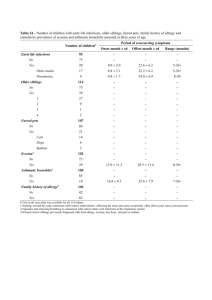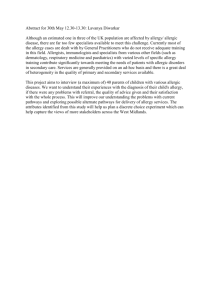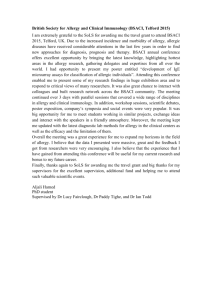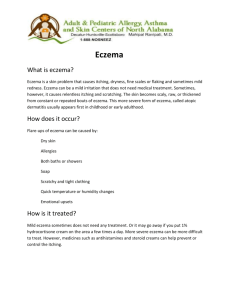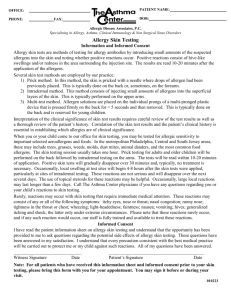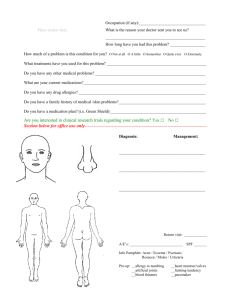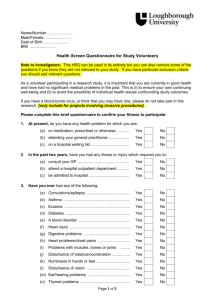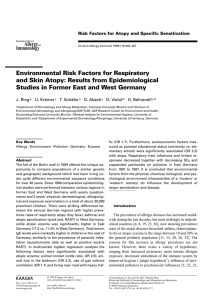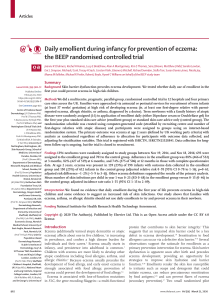Information on allergy and atopy - Home
advertisement
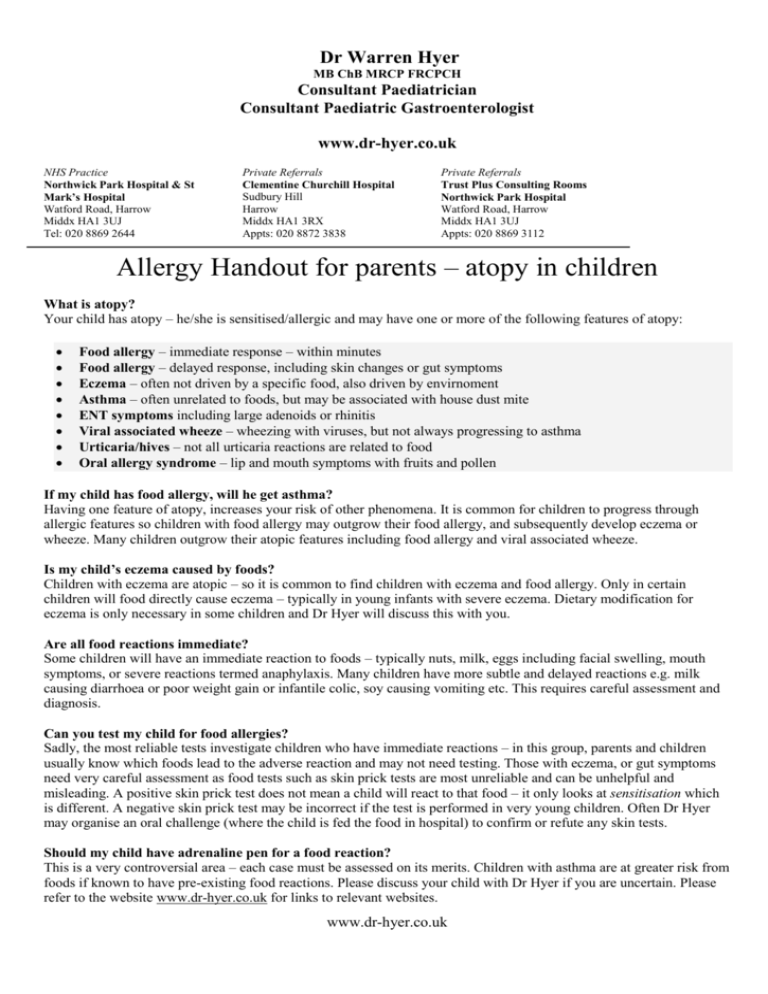
Dr Warren Hyer MB ChB MRCP FRCPCH Consultant Paediatrician Consultant Paediatric Gastroenterologist www.dr-hyer.co.uk NHS Practice Northwick Park Hospital & St Mark’s Hospital Watford Road, Harrow Middx HA1 3UJ Tel: 020 8869 2644 Private Referrals Clementine Churchill Hospital Sudbury Hill Harrow Middx HA1 3RX Appts: 020 8872 3838 Private Referrals Trust Plus Consulting Rooms Northwick Park Hospital Watford Road, Harrow Middx HA1 3UJ Appts: 020 8869 3112 Allergy Handout for parents – atopy in children What is atopy? Your child has atopy – he/she is sensitised/allergic and may have one or more of the following features of atopy: Food allergy – immediate response – within minutes Food allergy – delayed response, including skin changes or gut symptoms Eczema – often not driven by a specific food, also driven by envirnoment Asthma – often unrelated to foods, but may be associated with house dust mite ENT symptoms including large adenoids or rhinitis Viral associated wheeze – wheezing with viruses, but not always progressing to asthma Urticaria/hives – not all urticaria reactions are related to food Oral allergy syndrome – lip and mouth symptoms with fruits and pollen If my child has food allergy, will he get asthma? Having one feature of atopy, increases your risk of other phenomena. It is common for children to progress through allergic features so children with food allergy may outgrow their food allergy, and subsequently develop eczema or wheeze. Many children outgrow their atopic features including food allergy and viral associated wheeze. Is my child’s eczema caused by foods? Children with eczema are atopic – so it is common to find children with eczema and food allergy. Only in certain children will food directly cause eczema – typically in young infants with severe eczema. Dietary modification for eczema is only necessary in some children and Dr Hyer will discuss this with you. Are all food reactions immediate? Some children will have an immediate reaction to foods – typically nuts, milk, eggs including facial swelling, mouth symptoms, or severe reactions termed anaphylaxis. Many children have more subtle and delayed reactions e.g. milk causing diarrhoea or poor weight gain or infantile colic, soy causing vomiting etc. This requires careful assessment and diagnosis. Can you test my child for food allergies? Sadly, the most reliable tests investigate children who have immediate reactions – in this group, parents and children usually know which foods lead to the adverse reaction and may not need testing. Those with eczema, or gut symptoms need very careful assessment as food tests such as skin prick tests are most unreliable and can be unhelpful and misleading. A positive skin prick test does not mean a child will react to that food – it only looks at sensitisation which is different. A negative skin prick test may be incorrect if the test is performed in very young children. Often Dr Hyer may organise an oral challenge (where the child is fed the food in hospital) to confirm or refute any skin tests. Should my child have adrenaline pen for a food reaction? This is a very controversial area – each case must be assessed on its merits. Children with asthma are at greater risk from foods if known to have pre-existing food reactions. Please discuss your child with Dr Hyer if you are uncertain. Please refer to the website www.dr-hyer.co.uk for links to relevant websites. www.dr-hyer.co.uk
